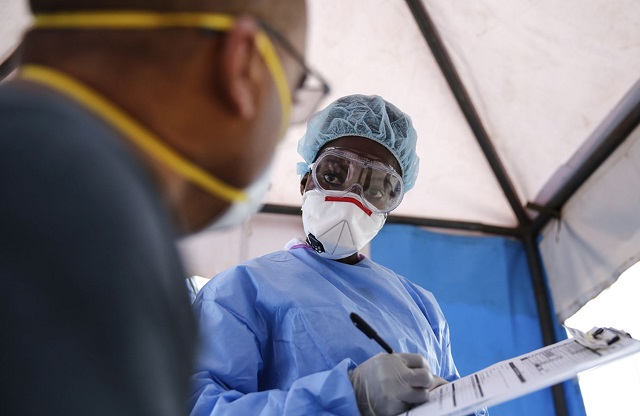
Kampala, Uganda | THE INDEPENDENT | Amidst complaints about discrepancies in the coronavirus (COVID-19) results offered at different accredited laboratories, the Uganda Virus Research Institute (UVRI) that supervises accredited labs in the country now requires any person that tests positive but with a low viral load to do a follow-up test later.
Referring to such a sample as border line, the UVRI executive director Prof. Pontiano Kaleebu said on Friday that the sample on the border line cut off will be withheld and a test repeated after two days to reduce the discrepancies.
Some people claim to have received two different result slips, one indicating positive and the other negative whereas others claim to have taken two different samples on the same day and they gave different results.
Kaleebu says this is not unheard of, explaining that sometimes the challenges arise from the health worker not knowing how to effectively pick the swab and at times the timing of the test could be bad at a point where the virus is still too small or when it has died.
On her part, Dr. Nabadda Ndidde, the executive director of Uganda National Public Health Laboratories said they have received complaints that some of the private accredited labs are using Rapid Diagnostics Tests (RDTs) to test for COVID-19, something that she says could be leading to wrong results.
She said for COVID-19, an RDT is only allowed to be used for research purposes or when conducting surveys. The only permitted test for COVID-19 by the World Health Organization she said is the Polymerase Chain Reaction (PCR).
As of today, nine government labs are accredited to do tests after recently adding the Fred Hutchson Lab at the Uganda Cancer Institute. In addition to the government labs, three private laboratories of Lancet, MBN and Medipal hospital laboratories have been added on the list. Although of the private ones, it’s only Lancet that is currently offering tests.
Nabadda says the public can easily verify whether their tests are fake or not by checking whether the details given at the time of picking the sample match with that on the test or the QR Code that can be scanned to see if the details match what is available in the Ministry of Health database.
The laboratory directors said however that they are still investigating the private labs that are said to be issuing fake results and that they will be penalized once discovered.
While they have capacity to conduct up to 10,000 tests daily at all the labs across the country, Nabadda says they have been conducting between 4000 to 5000 tests with challenges of shortages of test kits.
******
URN
 The Independent Uganda: You get the Truth we Pay the Price
The Independent Uganda: You get the Truth we Pay the Price



